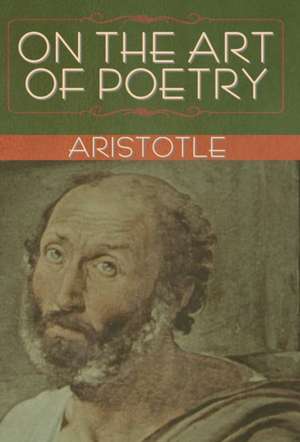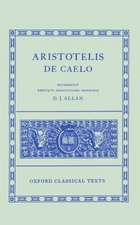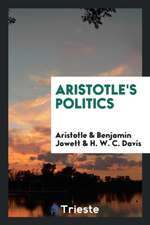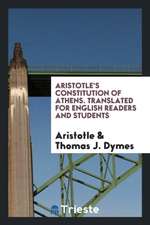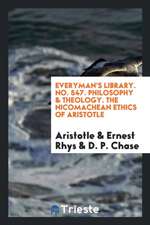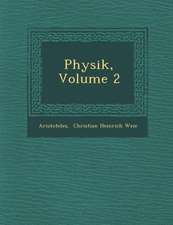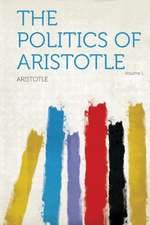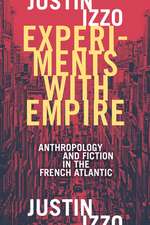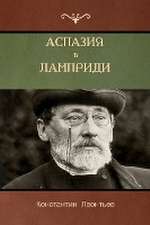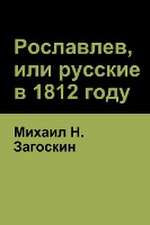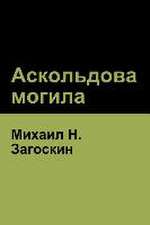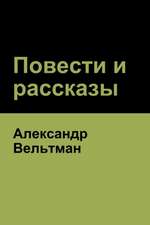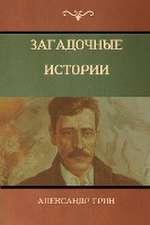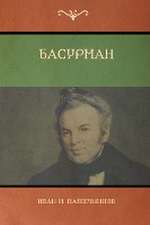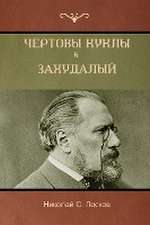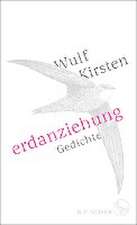On the Art of Poetry
Autor Aristotleen Limba Engleză Hardback – 6 ian 2020
Preț: 165.03 lei
Nou
Puncte Express: 248
Preț estimativ în valută:
31.58€ • 32.69$ • 26.69£
31.58€ • 32.69$ • 26.69£
Carte tipărită la comandă
Livrare economică 06-20 martie
Preluare comenzi: 021 569.72.76
Specificații
ISBN-13: 9781618958662
ISBN-10: 1618958666
Pagini: 86
Dimensiuni: 145 x 222 x 9 mm
Greutate: 0.26 kg
Editura: Bibliotech Press
ISBN-10: 1618958666
Pagini: 86
Dimensiuni: 145 x 222 x 9 mm
Greutate: 0.26 kg
Editura: Bibliotech Press
Notă biografică
Aristotle (384-322 BC) was a Greek philosopher during the Classical period in Ancient Greece, the founder of the Lyceum and the Peripatetic school of philosophy and Aristotelian tradition. Along with his teacher Plato, he has been called the Father of Western Philosophy. His writings cover many subjects - including physics, biology, zoology, metaphysics, logic, ethics, aesthetics, poetry, theatre, music, rhetoric, psychology, linguistics, economics, politics and government. Aristotle provided a complex synthesis of the various philosophies existing prior to him, and it was above all from his teachings that the West inherited its intellectual lexicon, as well as problems and methods of inquiry. As a result, his philosophy has exerted a unique influence on almost every form of knowledge in the West and it continues to be a subject of contemporary philosophical discussion. Little is known about his life. Aristotle was born in the city of Stagira in Northern Greece. His father, Nicomachus, died when Aristotle was a child, and he was brought up by a guardian. At seventeen or eighteen years of age, he joined Plato's Academy in Athens and remained there until the age of thirty-seven (c. 347 BC). Shortly after Plato died, Aristotle left Athens and, at the request of Philip II of Macedon, tutored Alexander the Great beginning in 343 BC. He established a library in the Lyceum which helped him to produce many of his hundreds of books on papyrus scrolls. Though Aristotle wrote many elegant treatises and dialogues for publication, only around a third of his original output has survived, none of it intended for publication.
